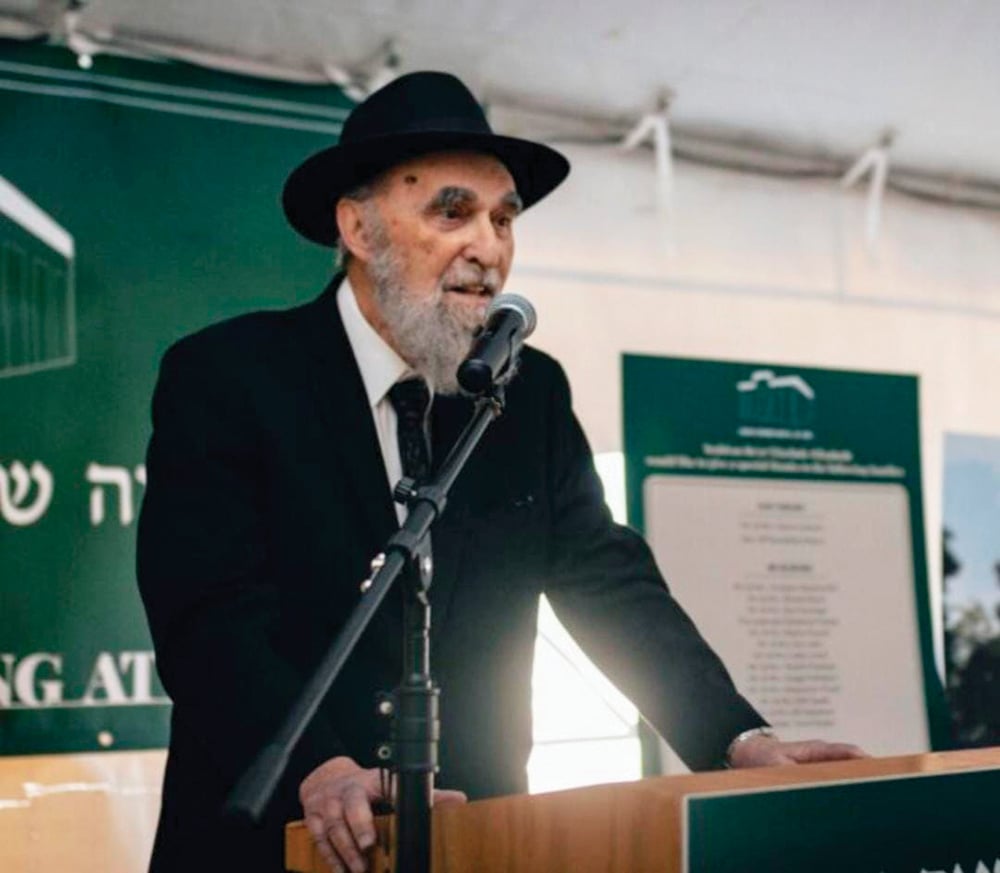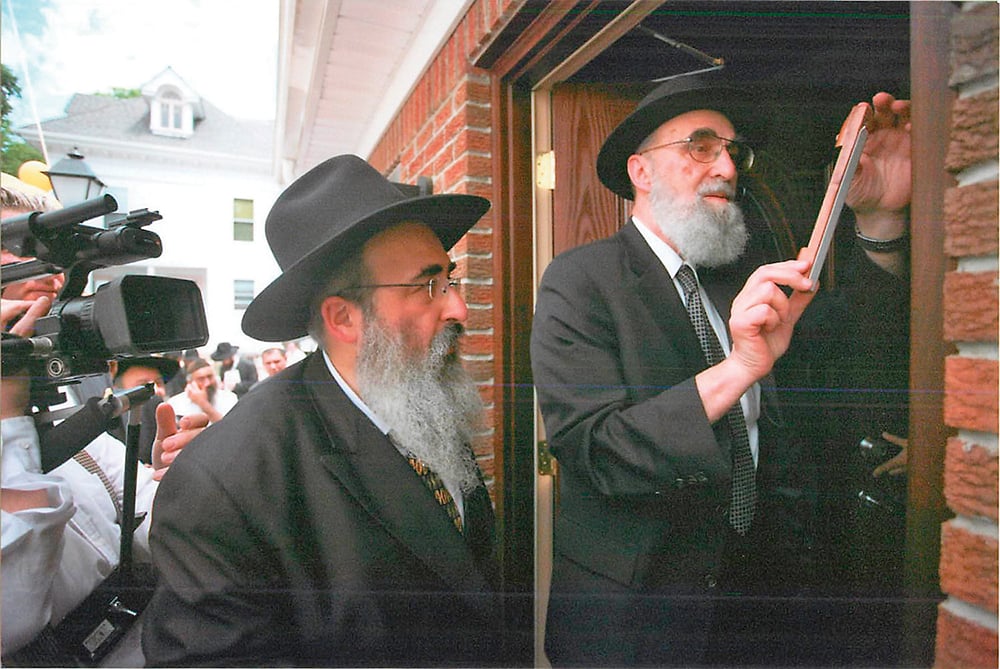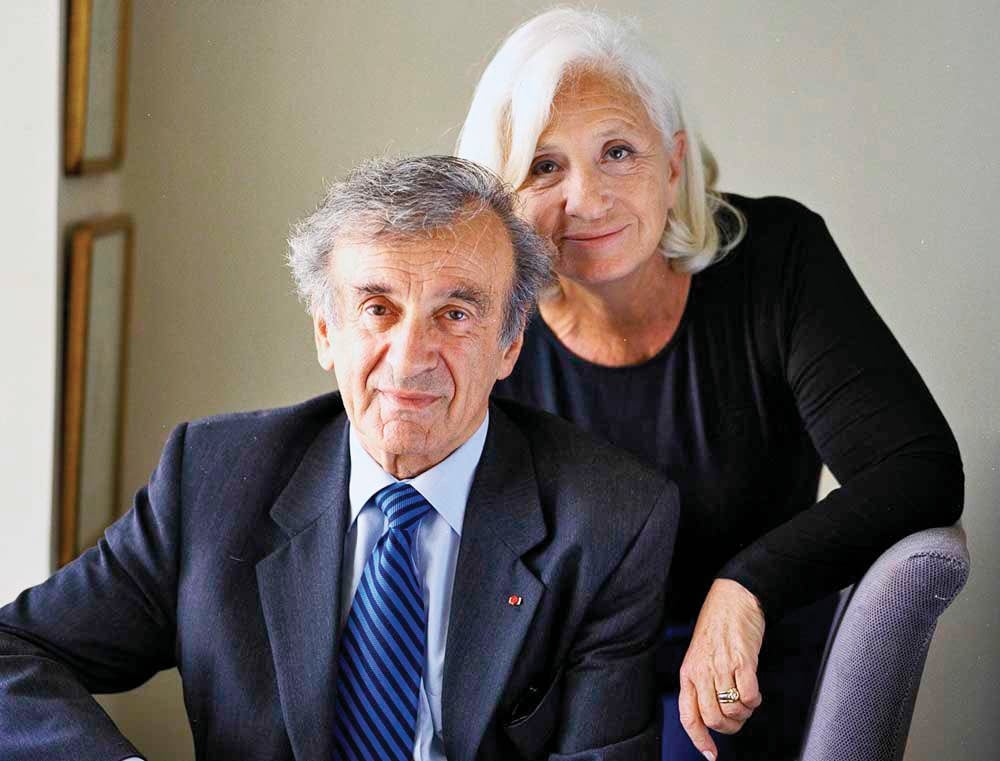There is a beautiful but puzzling statement in Masechet Kiddushin made by Rabbi Yehoshua ben Levi.
אמר ריב”ל כל המלמד את בן בנו תורה מעלה עליו הכתוב כאילו קבלה מהר סיני שנאמר והודעתם לבניך ולבני בניך וסמיך ליה יום אשר עמדת לפני ה’ אלהיך בחורב
According to the Maharsha’s explanation of this phrase,, R’ Yehoshua ben Levi is saying that anyone who teaches his grandchild Torah, it is as if the grandchild received those teachings from Mount Sinai. This is learned from the juxtaposition of the phrases in the fourth chapter of Sefer Devarim where it states, “But make them known to your sons and to your sons’ sons,” and “The day when you stood before the Lord your God in Horeb (Mt. Sinai).”
While the imagery of grandparents teaching grandchildren certainly brings a smile to our faces and is so special, one must wonder what wisdom Rabbi Yehoshua ben Levi was trying to impart by saying that a grandchild learning Torah from his/her grandparents is like the singular moment of Divine revelation.
Every Jew at Har Sinai received the unmistakable presence of God in their lives. It was seared into their minds and hearts for the rest of their lives. The Ramban in his Hasagot on the Sefer HaMitzvot says that one of the 613 commandments is שלא נשכח מעמד הר סיני ולא נסיר אותו מדעתנו אבל יהיה עינינו ולבנו שם כל הימים —that the feeling of God’s presence at Har Sinai should not be forgotten or removed from the Jewish people but rather remain perpetually with us from generation to generation.
When grandchildren learn Torah from grandparents they see how prior generations prioritize their commitment to God. Parents and grandparents act as role models and demonstrate their values by how they choose to spend their time with their children and grandchildren. If we take the time to learn with our children and grandchildren, we are doing much more than just spending time with them or teaching them a new halacha. We are communicating the central role God plays in our lives.
When children learn Torah with their parents or grandparents, it’s about more than the laws or stories. Intergenerational learning allows children to see the bigger picture, to feel connected to the chain of Mesorah from Har Sinai to today.
There is so much incredible Torah learning happening at our yeshivot and day schools. Our Judaics teachers are teaching our students how to learn more independently. They are successfully imparting knowledge about how to observe mitzvot properly and what values and morals we can learn from a story we read in the Torah. However, Rabbi Yehoshua ben Levi implores us, as a Jewish community, to ensure that our students are also having frequent and meaningful moments of Torah study with their parents and grandparents.
If one of our goals in Jewish education is to foster a strong sense of God in the lives of our students, then we must be thoughtful about creating Torah learning opportunities for our students to engage with their parents and grandparents. We must keep our parents in the know about what their children are learning and provide practical pathways for them to engage with their children in Torah study. Not every parent or grandparent has the textual skills and knowledge to sit down and learn with their children or grandchildren, but if we provide them with a review video of what we learned over the course of a unit, we can encourage them to watch and learn along with their children. We can create periodic parent-child learning opportunities so that our students can see with their own eyes how their parents value God and His Torah.
Additionally, we can guide our students on how to share and teach the Torah they study at school with parents and grandparents and fulfill another teaching of Rabbi Yehoshua ben Levi, found in the Talmud Yerushalmi in Masechet Shabbat. There we learn that Rabbi Yehoshua ben Levi would take the time every Friday to listen to his grandson recite the weekly parsha. One Friday afternoon, as he was washing himself in the bathhouse, he realized that he had not learned the parsha from his grandson. He immediately stopped bathing and proceeded to rush out of the bathhouse. He was asked: Why are you running out in the middle of bathing—there is no halachic reason for you to stop bathing at this point? Rabbi Yehoshua ben Levi answered back, קַלָּה הִיא בָעֵינֶיךָ? “Is this such a small thing in your eyes? For whoever hears the parsha from their grandchild, it is as if they heard it directly from Mount Sinai.”
Rabbi Yehoshua ben Levi understood well that intergenerational Torah learning moments are not just ways to spend time with each other. Rather, they are opportunities to elevate the status of Hakadosh Baruch Hu for everyone involved in the endeavor. Let us all work together, educators, parents and grandparents and dedicate ourselves to creating thoughtful and consistent opportunities for ourselves and our children to have many Ma’amad Har Sinai moments.
Rabbi Klinger is the director of Judaic studies at Westchester Day School. He also serves as the associate rabbi for the Young Israel of Scarsdale. Rabbi Klinger can be reached at [email protected].











